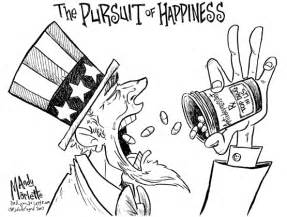
Antidepressants are now the best-selling drugs in the USA – and their consumption has doubled in the last 10 years.counseling-office.com
Alternative Depression Treatments
Mainstream advertising by big pharma in correlation with the theory of chemical imbalances in the brain causing depression have led to growing use of mostly ineffective antidepressants, particularly in America. This blog will dispel the myth that antidepressants are helpful and offer some safer alternatives to depression.
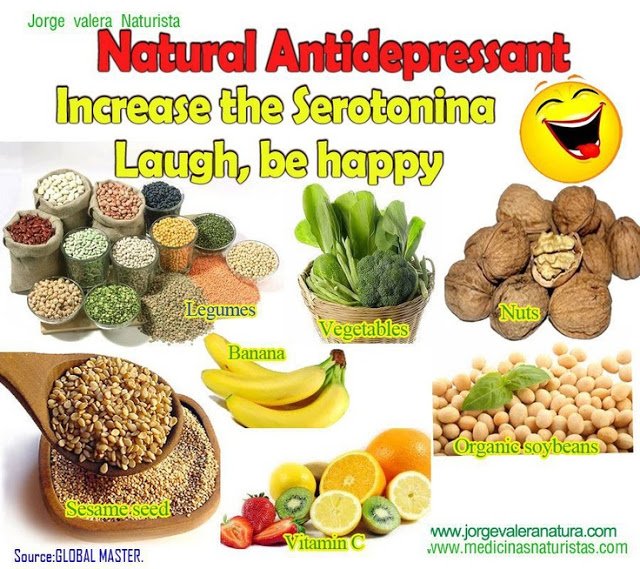
Antidepressants are mostly Ineffective
The theory that chemical imbalances in the brain may cause depression has not been substantiated; in fact, a research source from my x-college stated that there is no proof that antidepressants fix these imbalances, anyway. Fidler (2015) informs us that in the 1990’s the use SSRIs to “fix” depression skyrocketed. At the time, it was believed that SSRIs are safer than tranquilizers for treating depression. “Despite being weaker than old-style tricyclic antidepressants, they grew in popularity because it was believed they restored serotonin levels back to normal, ‘a notion that later transmuted into the idea that they remedied a chemical imbalance,’ said David Healy, head of psychiatry at the Hergest psychiatric unit in Bangor, North Wales. Healy wrote in a report published in the journal BMJ that in the 1990s, no one knew if SSRIs raised or lowered serotonin levels, but there was no evidence that the treatment worked as a treatment at all” (Fidler, 2015, para.2). “Professor Sir Simon Wessely, President of the Royal College of Psychiatrists, says that…‘most researchers have long since moved on from the old serotonin model.’ Further, reports say that 70% of people on antidepressants don’t have depression” (Fidler, 2015, para.7).
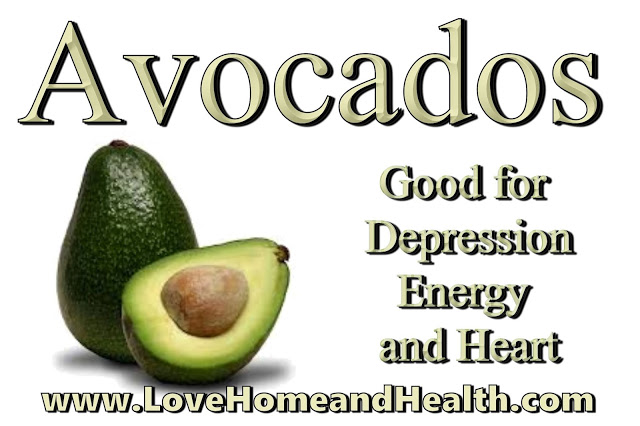
Brain Function may be Altered by Antidepressants
Antidepressants may be permanently and dangerously altering the brain function and they fail to target depression’s root cause (Fidler, 2015). “Only about 15% of clinically depressed people that are treated with an antidepressant go into remission and stay well for a long period of time. The other 85% begin suffering continuing relapses and become chronically depressed” (Fidler, 2015, para.18). Neurotransmitters can be interfered with by psychotropic drugs because they upset the brain’s delicate processes of biological function maintenance that results in mental illness mimicking side effects. “After several weeks on psychoactive drugs, the brain’s compensatory efforts begin to fail, and side effects emerge that reflect the mechanism of action of the drugs. For example, the SSRIs may cause episodes of mania, because of the excess of serotonin. Antipsychotics cause side effects that resemble Parkinson’s disease, because of the depletion of dopamine (which is also depleted in Parkinson’s disease)” ( Fidler, 2015, para.24).

What it barely considers are the suicide-inked antidepressants, antipsychotics and antiseizure drugs whose use exactly parallels the increase in US troop suicides since 2005.dissidentvoice.org
Suicide Elevations with Antidepressants
Suicide rates are higher among depressed patients who are takin psychotropes, and their “medications” are often used for “successful” suicides. Lejoyeux & Rouillon (1996) report that the condition of being in psychiatric care appears to be closely related to suicide, and that there is a 30-fold risk of suicide associated with a history of depression. “Patients who commit suicide take the more easily available medications. The decrease in the prescription of barbiturates has been associated with a decrease of the frequency of self-poisoning with barbiturates. In the same time, neuroleptics, antidepressants and benzodiazpines, more often prescribed, induced more lethality by suicide. The number of deaths by millions of prescriptions variates, with the antidepressants, between 13 and 166. They correspond to 0.005% of death each year among patients taking antidepressants… According to the results of all controlled studies of antidepressants, suicide attempts are more frequent among patients taking antidepressants (1.7% of the cases) than among patients receiving placebo (0.8%)” (Lejoyeux & Rouillon, 1996, para.1).
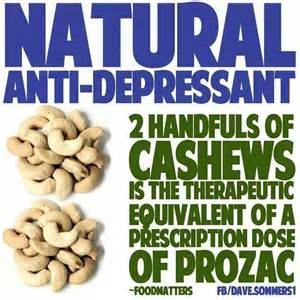
Antidepressant Natural Cashews
Cashews Are A Natural Anti-Depressant - Also includes list of 15 other health benefits of cashews.pinterest.com
Alternatives for Depression
There are a few alternatives that we can try for depression before we go to the psychiatrists for psychotropic medications.
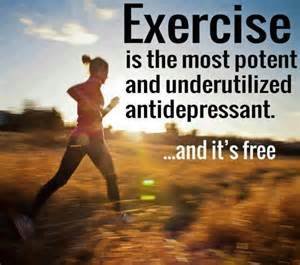
Exercise is the most potent and underutilized antidepressant… and it’s free!starling-fitness.com
Exercise
In my life, I have noticed that a walk always cheers me up when I feel down. Phelps (2014) reports that exercise is on the top of the list as an alternative treatment for depression, but patients do not get motivated to do it. Bindler & Ward (2011) inform us that “science indicates that people who regularly exercise benefit from positive boosts in mood and reduce the risk of depression. When you exercise, the body naturally releases chemicals called endorphins that trigger positive feelings in the body and mind” (para.7). Exercise is great for our heart and lungs as well.
Meditation
“Professor Mark Williams, from the Department of Psychiatry at the University of Oxford conducted a trial study reported by the BBC News, indicates that meditation reduces the likelihood of depression by over 50%. ‘It suggests to people that they begin to see all their thoughts as just thoughts, whether they are positive, negative or neutral’” (Bindler & Ward, 2011, para.3).
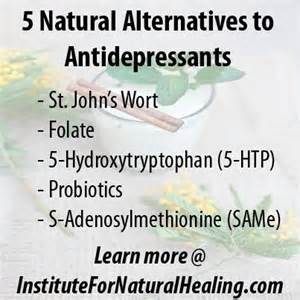
Natural Antidepressant
Here are five natural alternatives to antidepressants.pinterest.com
Frankincense
“In a new study (that can be found at The Federation of American Societies for Experimental Biology (FASEB) Journal an international team of scientists have discovered how burning frankincense (resin from the Boswellia plant) activates poorly understood ion channels in the brain that alleviate depression” (Bindler & Ward, 2011, para.4).
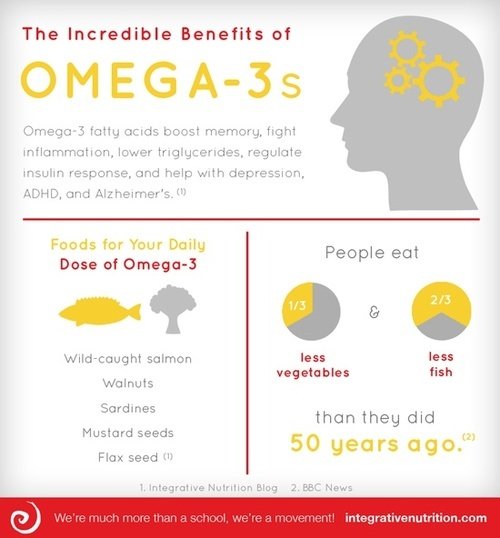
Omega-3 Fatty Acids
“People suffering from depression have lower levels of omega-3 fatty acids in the blood. One study (Nemets & Belmaker - American Journal of Psychiatry) showed that the lower the level of EPA, the more severe the clinical depression. In addition, fish oil supplementation reduced suicidal tendencies and improved the well being when 40 people were given fish oil or placebo for 12 weeks (Hallahan, Hibbeln, Davis - British Journal of Psychiatry). Fish oil can be found in raw and cooked fish and can also be taken as a dietary supplement” (Bindler & Ward, 2011, para.6).
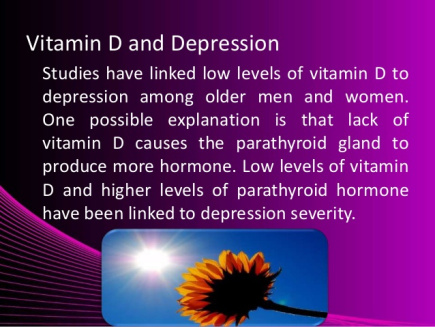
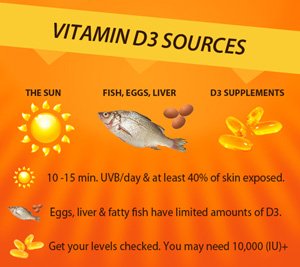
Vitamin D
“Vitamin D has been shown to increase levels of serotonin in the brain. Researchers from the University of Toronto noticed that people who were suffering from depression, particularly those with seasonal affective disorder, tended to improve as their levels of vitamin D in the body increased over the normal course of a year. The recommendation is to allow yourself limited, unprotected sun exposure in the early morning and late afternoon (no more than 15 minutes for light-skinned individuals, 40 minutes for darker skin). Vitamin D is also available as a dietary supplement and can be found at ProHealth” (Bindler & Ward, 2011, para.9).

Gardening
There is nothing like sticking your in Mother Earth to cheer me up. “Researchers from Bristol University and University College London discovered using laboratory mice, that a "friendly" bacteria commonly found in soil activated brain cells to produce the brain chemical serotonin and altered the mice's behaviour in a similar way to antidepressants” (Paddock, 2007, para.3). Gardening also adds exercise and vitamin D as we do it.
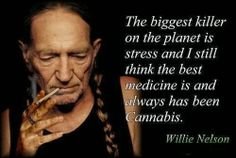
Marijuana
I was amazed to find a study concerning marijuana and depression. Jiang, et.al. (2005) report that “chronic, but not acute, HU210 treatment promoted neurogenesis in the hippocampal dentate gyrus of adult rats and exerted anxiolytic- and antidepressant-like effects. X-irradiation of the hippocampus blocked both the neurogenic and behavioral effects of chronic HU210 treatment, suggesting that chronic HU210 treatment produces anxiolytic- and antidepressant-like effects likely via promotion of hippocampal neurogenesis” (para.1). In plain English pot helps the brain get over depression.
Marijuana Does Not Harm Brain Function
MacDonell (2016) reveals that “Staci Gruber, PhD, director of the Marijuana Investigations for Neuroscientific Discovery (MIND) program at McLean Hospital—Harvard Medical School’s largest psychiatric affiliate—is the lead “Splendor in the Grass?” researcher. Her initial report is twofold positive. For one thing, weed treatment led to patients breezing through an array of brainteasers with enhanced speed and accuracy” (para.5). In a different McLean report Gruber states that “after three months of medical marijuana treatment, patients actually performed better, in terms of their ability to perform certain cognitive tasks, specifically those mediated by the frontal cortex” (MacDonell, 2016, para. 6). Opioid use decreased by 42% among the participants who also reported improvements in overall health, sleep, as well as their clinical conditions (MacDonell, 2016).
Use Depression to make Ourselves Stronger
“A recent article from the BBC News features Dr Paul Keedwell, an expert on mood disorders at the Institute of Psychiatry, King’s College London. Keedwell says that depression is not a human defect at all, but a defense mechanism that in its mild and moderate forms can force a healthy reassessment of personal circumstances. ‘Don’t beat yourself up about being depressed, in most cases it will run its course provided you take yourself out of the situation that caused it.’ Depression can actually serve a purpose, deepening and enriching the human experience. By overcoming challenging times in our lives, we can actually become stronger evolutionarily speaking” (Bindler & Ward, 2011, para.11). When we feel depressed we can make changes to improve ourselves without running to the psychiatrist.
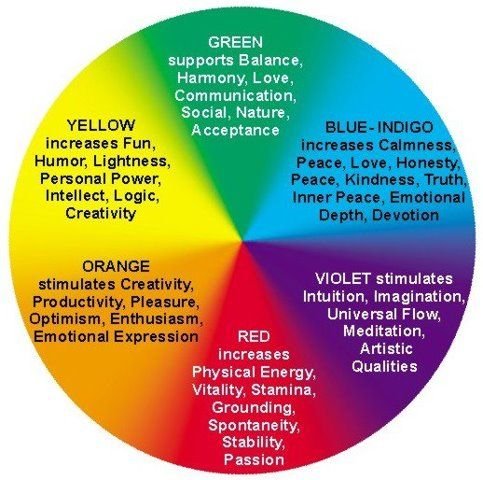
Color therapy is also beneficial.
References
Bindler, Shannon. & Ward, Margalit. (17 November, 2011). 10 Natural Antidepressants to Boost Your Spirits. The Huffington Post. Retrieved from http://
Fidler, Julie. (30 July, 2015). Antidepressants May be Worsening Depression, Not Treating it. The Mind Unleashed. Retrieved from
Jiang, W., Zhang, Y., Xiao, L., Van Cleemput, J., Ji, S.-P., Bai, G., & Zhang, X. (2005). Cannabinoids promote embryonic and adult hippocampus neurogenesis and produce anxiolytic- and antidepressant-like effects. Journal of Clinical Investigation, 115(11), 3104–3116. http://doi.org/10.1172/JCI25509. Retrieved from https://www.ncbi.nlm.nih.gov/pmc/articles/PMC1253627/
Lejoyeux M. & Rouillon F. (22 Dec, 1996). Suicide and psychotropic drugs. US National Library of Medicine National Institutes of Health. Retrieved from https://www.ncbi.nlm.nih.gov/pubmed/9138936 (Lejoyeux & Rouillon, 1996)
MacDonell, Allan. (11 March, 2016). Harvard Study: Smoking Weed Improves Brain Functions. Kindland. Retrieved from http://www.thekindland.com/wellness/harvard-study-smoking-weed-improves-brain-functions-2330
Paddock, Catharine PhD. (2 April, 2007). Soil Bacteria Work In Similar Way To Antidepressants. Medical News Today. Retrieved from http://www.medicalnewstoday.com/articles/66840.php (Paddock, 2007
Phelps, James MD. (23 January, 2014). No Need for Blood: Nine Alternatives to the Antidepressant Debate. Psychiatric Times.Retrieved from http://www.psychiatrictimes.com/bipolar-disorder/no-need-blood-nine-alternatives-antidepressant-debate
Congratulations @paigemoore! You have completed some achievement on Steemit and have been rewarded with new badge(s) :
Click on any badge to view your own Board of Honor on SteemitBoard.
For more information about SteemitBoard, click here
If you no longer want to receive notifications, reply to this comment with the word
STOPDownvoting a post can decrease pending rewards and make it less visible. Common reasons:
Submit